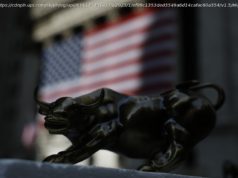Kobach is one of the least popular politicians in Kansas. Kobach had a net favorability rating of -17 points in a 2018 poll from Fort Hays State University.
He served as vice chairman of Trump’s Presidential Advisory Commission on Election Integrity, which was set up after the President repeatedly made unsubstantiated claims that widespread voter fraud occurred in the 2016 election. The group’s supposed aim was to investigate voter fraud, but it never presented any evidence to support the President’s claims. It was eventually shutdown.
Last week, a former member of the panel, Maine’s Democratic secretary of state Matthew Dunlap, wrote a letter to Vice President Mike Pence and Kobach saying he had «reviewed the Commission documents made available to me and they do not contain evidence of widespread voter fraud.»
ProPublica and the Kansas City Star have also reported that Kobach sold himself as an attorney who would write laws aimed at combating illegal immigration for towns and defended them in court for a substantial fee. Many of those of municipalities lost in court, but Kobach made off with a lot of money, according to the reports. Kobach has disputed some of the characterizations in the article.
Now, Kobach is running for governor of Kansas. Oddly enough, Democrats are welcoming this news and hoping Kobach defeats current Republican Gov. Jeff Colyer in Tuesday’s primary. Polls give Kobach a slight edge.
Why would Democrats be rooting for Kobach? He’s uniquely positioned to allow a Democrat to win the general election in November.
General election polling has been limited in the Sunflower state. The one poll that has been published, however, shows Kobach down by a point to potential Democratic nominee Laura Kelly. (Colyer was ahead of her by 10 points in the same poll.) The survey was conducted by Remington Research Group (a GOP aligned group) and does not meet CNN’s standards because it didn’t use live interviewers for all of its respondents.
The idea Kobach is in trouble in a general election is backed up by other data-points. Kobach is one of the least popular politicians in Kansas. A spring 2018 poll from Fort Hays State University, which only used live interviewers, found that Kobach had a net favorability rating of -17 percentage points. Colyer, on the other hand, broke far closer to an even score. Indeed, no one else in the poll besides Kobach was anywhere close to such a negative score.
It’s important to note that Kansas is a very Republican state on the federal level. It voted for Trump by over 20 points. It last elected a Democrat to the Senate in 1932.
Trump though isn’t so popular in Kansas right now. Gallup’s polling over 2017 showed him with an approval rating under 50%.
Additionally, Democrats have much more success in non-federal statewide elections in Kansas.
The state has a history of electing Democratic governors. Kathleen Sebelius won two terms as governor in the 2000s. Joan Finney won a term in the 1990s before that. John Carlin served two-terms in the 1970s and 1980s.
Just four years ago, Republican Gov. Sam Brownback was barely reelected. He won by only 4 percentage points in a year in which Republicans romped nationwide. Brownback suffered at the ballot box because of an aggressive tax plan that ended up draining the state’s coffers.
Brownback’s budget policies made him one of the least popular governors in the nation by the time he left office to take a job in the Trump administration. Kobach wants to restore that tax plan, which was repealed by the Republican-run state legislature over Brownback’s veto.
In this way, Kobach is setting the table for what has typically been the playbook for Democratic success in Kansas. There are in essence three political parties in the state. There’s a conservative Republican Party (of which Kobach is part of), a more moderate Republican Party and a Democratic Party. Democrats can win statewide when Republicans nominate conservatives, which allows the Democratic nominee to take off a chunk of the moderate Republicans (It’s how Sebelius won a first term in 2002).
Democrats, though, are in a way facing their own division: the candidacy of independent Greg Orman. He could take votes away from whomever wins the Democratic nomination.
Political watchers may recognize Orman from his bid for the US Senate in 2014. In that campaign, he got Democrat Chad Taylor to drop out of the race. That seems far less likely to occur this time around.
Despite far higher name recognition than Kelly, Orman barely broke double-digits in the Remington poll.
Of course, we’re getting a little bit ahead of ourselves. First, we need to see if Kobach actually wins the nomination on Tuesday.
If he does, it’s likely that Kansas will be home to one of the most competitive gubernatorial elections this fall.
Домой
United States
USA — Financial Trump's Kobach endorsement could cost the GOP a governor's race in red...






